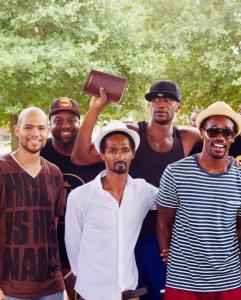 The cycle seems to never get old. Some Christian supposedly says or does something that someone somewhere finds scandalous. Whether or not the report is accurate, we rarely know and don’t really care. Why? There is no time for truth when the world wide web of weird commences the now daily sacrament of rotten tomato flinging. Immediately, a mob also begins their sprint to the hardware store for ceremonial pitchforks, torches, and enough spray paint to spell “hypocrite” in letters big enough for Jesus to see from heaven.
The cycle seems to never get old. Some Christian supposedly says or does something that someone somewhere finds scandalous. Whether or not the report is accurate, we rarely know and don’t really care. Why? There is no time for truth when the world wide web of weird commences the now daily sacrament of rotten tomato flinging. Immediately, a mob also begins their sprint to the hardware store for ceremonial pitchforks, torches, and enough spray paint to spell “hypocrite” in letters big enough for Jesus to see from heaven.
Feedback
Almost half of our survey participants (45%) agreed with the statement “Most Christians are hypocrites.” One guy in our focus groups complained about Christians parading on social media. He wondered, “Are you living the life, or are you just tooting the horn?”
One fact became obvious as I studied the responses of people who volunteered their thoughts in our focus groups. Many had no clue what a Christian actually is. I felt bad for these non-Christians trying to sort us out. One focus group was arguing “Well, who are the Christians?” Pretty soon they had lumped together Catholics, evangelicals, Mormons, Jehovah’s Witnesses, Hindus, and Wiccans. That’s not our team.
Maybe more surprisingly, some of the participants had no firsthand experience with a Christian or a Christian church. A woman in Phoenix said, “I’ve never known an evangelical Christian person personally.” A guy in San Francisco also said, “In terms of actual memory in a church, I can’t really think of any.”
This lack of contact between Christians and non-Christians is only increasing. Missiologist Todd M. Johnson and his team at the Center for the Study of Global Christianity at Gordon-Conwell Theological Seminary says that one in five non-Christians in North America does not personally know a Christian.(1)
With little or no firsthand experience of everyday Christians, many people in our focus groups and beyond base their views of Christianity on people they see in the media. I compiled a list of literally every “Christian” named in our focus groups. The person who came up most often was Billy Graham, a man deeply admired among evangelicals. The rest of the list included television preachers Creflo Dollar, Joel Osteen, Robert Schuller (retired), Jim Bakker, and Tammy Faye Bakker (died 2007). Also mentioned were Ted Haggard, industrialist John Rockefeller (died in 1937), politician Michelle Bachman, football players Deon Sanders and Tim Tebow, politically vocal pastors Pat Robertson, Al Sharpton, and Jerry Falwell (died in 2007). Others mentioned were Pastor Fred Phelps of Westboro Baptist, notorious for protesting at military funerals; Pastor Jerry Jones, who wanted to burn the Koran; and James Austin, a Zen Buddhist neurologist.
Those seventeen people are the sum total of the “Christians” mentioned by name in our focus eight groups. Of those fifteen guys and two women, two are retired and three deceased. At least one openly disavows Christianity. Several others at best appear to miss the basics of biblical Christian faith. All are known for attracting media attention, much of it negative. As a guy in Boston said, “I think the biggest problem with Christianity is, like we all just said, the extremists, because they get the face time. That’s what you see on Fox News.”
Yep. The media favors the negative and the nutty. So if that is the case, where else do people get a feel for Christianity?
“Other people and TV and movies, things like that.” And then they listed “Exorcism of Emily Rose.” “Religulous,” the Bill Maher movie, and “Steve Martin in Leap of Faith.”
Scandalous and sensationalistic media are not the best way to get acquainted with a group. Imagine basing your whole view of the United States on television shows where eccentric Americans make moonshine, catch fish barehanded, and shoot gators in the head. If we’ve learned anything from reality television, we’ve learned that there is no such as reality on television.












